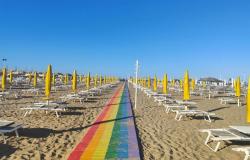The broadcast began with the intervention of Valeria Manieriof Radio Radicale, which introduced the guests and set the themes of the episode, namely the G7 which has just ended in Borgo Egnazia in Puglia, but also the international summit on peace in Ukraine which was held in recent days in Switzerland.
Roger Po, journalist, drew a picture of the results obtained during the G7, especially regarding sustainability. Among the topics that were touched upon during the meeting: management of conflict scenarios, from Ukraine to Gaza, migration, food security, climate resilience and artificial intelligence.
He answered Antonio Tajanivice-president of the Council of Ministers and Minister of Foreign Affairs, as well as national secretary of Forza Italia, who spoke about the international meeting in Lamp about the conflict in Ukraine that took place this weekend. During the meeting we discussed the central Zaporiggia, the question of Ukrainian grain, and the exchange of prisoners, and especially the liberation of Ukrainian children in Russia. “Italy continues with great commitment and determination to work for Peace”, said Tajani, “both in Ukraine and on the other front, in the Middle East, a Gazawhere a ceasefire needs to be reached.”
Ruggero Po then questioned Roberto Menotti, senior advisor in International activities at Aspen institute Italia, with respect to the fact that at the G7, except in the case of Giorgia Meloni, the leaders who participated in the Summit all have internal political problems, and in the near future their political mandate is risk. This could compromise the fate of the agreements made last weekend. “Fortunately in any respectable democracy, the leaders who participate in such an international meeting have limited mandates. This substantial precariousness of democratic governments is actually their strength. However, the G7 made a great effort in this sense, also because in the tone of the final communiqué the themes that were agreed upon are structural and represent a consensus between Western countries that is very solid in reality”, states Menotti.
Finally he spoke Roberto Ridolfi, president of the NGO network Link 2007. “We must pay close attention to these variable geometries that are establishing themselves on the planet,” commented Ridolfi. “The G7 is no longer what it was ten or fifteen years agoand therefore has a role only if it manages to convince the Brics or the G20 to move in certain directions”. Ridolfi recalled that during the summit it was the Pope who spoke about the issue of public debt in developing countries, which “stifles any attempt at help through traditional investments. The quality of the loans must be sized to the impact of social and economic sustainability, and in this the two key elements, climate change and migration, must be considered”.
by Milos Skakal
LISTEN TO THE LATEST EPISODE – High sustainability – What future for sustainability and safety, after the Italian G7?
GO TO THE HIGH SUSTAINABILITY EPISODES ARCHIVEthe ASviS broadcast broadcast every Monday from 12.30 to 13.00 on Radio Radicale, except for parliamentary live broadcasts, and available in podcast form.
Edited by Valeria Manieri, Ruggero Po and Elis Viettone, with the organizational support of Monica Sozzi.





